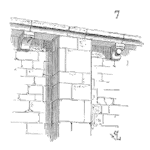
Should Reliability Engineers Encourage Component Derating?
Abstract
Kirk and Fred discussing the issue of derating components to increase the reliability of the larger system. Although Fred and Kirk agree on most reliability topics, derating by the traditional reliability guidebooks is not one of them.
ᐅ Play Episode












 Ask a question or send along a comment.
Please login to view and use the contact form.
Ask a question or send along a comment.
Please login to view and use the contact form.